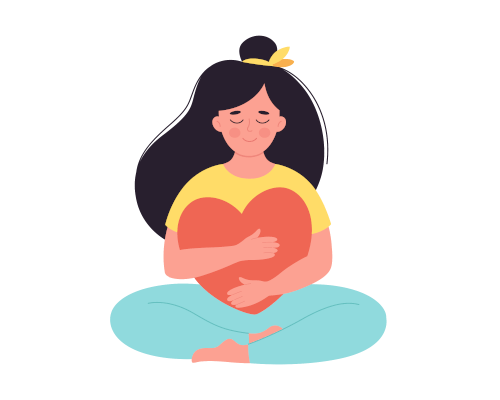 When it comes to improving your physical, emotional, and mental well-being, developing healthy habits can be a real life changer for healing and rejuvenation processes. However, maintaining these habits can be difficult at times, especially when life becomes hectic or stressful. This article will look at how to develop healthy habits in your life and how to maintain a recovery mindset without falling off the waggon.
When it comes to improving your physical, emotional, and mental well-being, developing healthy habits can be a real life changer for healing and rejuvenation processes. However, maintaining these habits can be difficult at times, especially when life becomes hectic or stressful. This article will look at how to develop healthy habits in your life and how to maintain a recovery mindset without falling off the waggon.
Begin small and stay consistent
One of the most common mistakes people make when attempting to establish healthy habits is attempting to do too much too soon. This can quickly become overwhelming and lead to burnout, making sticking to your goals more difficult. Instead, begin slowly and consistently. Choose one or two habits to develop and commit to practising them every day for at least 30 days. You can add more once these habits become automatic.
Set attainable objectives
Starting small is important, but so is setting realistic goals for yourself. Setting goals that are too ambitious or unrealistic will lead to failure. Set goals that are challenging but attainable, and be honest with yourself about what you can accomplish.
Determine accountability
When it comes to developing healthy habits, having someone to hold you accountable can be a game changer. Find a friend, family member, or coach who will be there for you and will hold you accountable. You can also join a community of people who share your goals and can offer you encouragement and support.
Celebrate your victories
Take the time to celebrate your victories when you achieve your goals or reach milestones. Celebrating your accomplishments can help you stay motivated and on track.
Self-care is essential
When it comes to developing healthy habits, self-care is essential. Make sure you get enough sleep, eat healthy foods, and set aside time each day for yourself. Self-care is essential for maintaining a healthy mindset, whether it’s going for a walk, reading a book, or taking a relaxing bath.
Maintain a positive attitude
When developing healthy habits, it is critical to keep a positive attitude. If you make a mistake or fall off the waggon, don’t berate yourself. Instead, concentrate on your accomplishments and get back on track. Remember that developing healthy habits is a process, not a destination.
Learn from your setbacks
Any journey includes setbacks, and developing healthy habits is no exception. When you face setbacks, take the time to consider what went wrong and what you can do differently next time.
Create a routine that works for you
Developing a structured routine in your life provides stability and consistency, which can help reduce anxiety and stress.
Participate in support groups
Attending meetings or recovery support groups can help you connect with others in recovery and provide a sense of community and accountability.
Exercise on a regular basis
Endorphins are released during exercise, which can improve your mood and help you reduce cravings for addictive substances.
Consume a well-balanced diet
A nutritious diet can help you improve your overall health and decrease your cravings for unhealthy foods and substances.
Mindfulness and meditation should be practised.
Meditation and mindfulness can help you manage stress and become more aware of your thoughts and feelings.
Stay away from high-risk situations
Avoiding situations where you are likely to be tempted to use drugs or alcohol can help lower your chances of relapse.
Create healthy coping mechanisms
Find healthy ways to deal with stress, such as exercising, meditating, or talking to a friend or therapist. Creating healthy coping mechanisms is essential for managing day-to-day stressful events. One way to develop these mechanisms is by identifying the triggers that cause stress and learning to manage them effectively. This can involve taking breaks, practicing relaxation techniques such as deep breathing or meditation, or engaging in physical exercise. Developing a positive mindset and reframing negative thoughts can also be helpful. Seeking support from loved ones, a therapist, or a support group can provide additional coping strategies and a sense of community. It’s important to prioritize self-care and to be kind to oneself during difficult times. By consistently practicing healthy coping strategies, one can build resilience and better manage stress in the long run.
Getting enough sleep is essential for maintaining physical and emotional health. Sleep allows the body to rest and repair itself, and it is required for normal cognitive functioning, memory consolidation, and mood regulation. Obesity, diabetes, cardiovascular disease, and depression can all be exacerbated by chronic sleep deprivation. It can also impair immune function and increase the likelihood of an accident or injury. On the other hand, getting enough high-quality sleep on a consistent basis can improve overall health and well-being by increasing energy levels, cognitive performance, and emotional resilience. Prioritizing sleep hygiene, such as keeping a regular sleep schedule, limiting caffeine and alcohol consumption, and creating a comfortable sleep environment, can help promote better sleep and contribute to improved physical and emotional health.
Create new hobbies and interests
Finding new hobbies and interests is a great way to keep yourself busy while avoiding thoughts of using drugs or alcohol. Engaging in enjoyable, challenging, or fulfilling activities can provide a sense of purpose and accomplishment while distracting from negative thoughts or urges. Hobbies can also aid in the development of social connections and a support network of like-minded individuals with similar interests. It’s critical to try new things and find activities that suit you and your new recovery-based lifestyle.
Seek professional assistance
Professional help from a therapist, counsellor, or addiction specialist is crucial for individuals struggling with addiction to maintain sobriety and stay in recovery. These professionals often provide a safe, non-judgmental space to discuss the challenges and triggers as well as how to develop healthier coping mechanisms and relapse prevention strategies. Moreover, they can help individuals can offer guidance on how to repair damaged relationships, rebuild self-esteem, and create a meaningful life in sobriety which is pretty important guidance and support.




